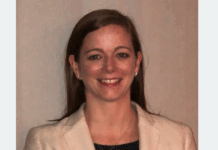Well, folks, it seems like some people just can’t handle the heat. When Donald Trump emerged victorious in the presidential election, certain journalists and students alike were, let’s just say, “emotionally distressed.” Over at The Guardian, that famously left-leaning British newspaper, editor-in-chief Katherine Viner felt compelled to send out an internal email to comfort her shaken staff. In it, she encouraged journalists to reach out for support, consult their managers, and even take advantage of the company’s mental health services—all in the wake of an election result that clearly wasn’t to their liking.
Now, for those keeping score, this isn’t a high-stakes event like a national tragedy or a natural disaster. It’s just a change in leadership. Yet, the way some of these journalists responded, you’d think the world was ending. And it’s not just The Guardian; this hand-wringing has become a trend among elites who struggle to accept election results that don’t go their way.
But wait, it gets better. Viner didn’t just offer a shoulder to cry on; she actually used the situation to fundraise. Yes, instead of focusing on journalism, she sent out an appeal for donations to help her newspaper “stand up” to four more years of Trump. The message was clear: they need resources to battle this so-called “threat.” Because, apparently, democracy functioning as designed is an existential crisis for some of these folks.
The editor of the Guardian has offered counselling to staff troubled by Trump’s victory. Beyond parody. These people seriously need to get a grip. https://t.co/z0brsa2QeJ
— Paul Embery (@PaulEmbery) November 7, 2024
Even better, Viner’s call to action wasn’t just a UK phenomenon. Across the pond in New York City, the prestigious (and very pricey) Ethical Culture Fieldston School informed parents that students “emotionally distressed” by the election could skip class the day after Election Day. For $65,000 a year, you might think these kids would be taught resilience, but instead, they’re being allowed to avoid reality because of a political outcome. Comedian Jerry Seinfeld, whose kids attended the school, was reportedly baffled, like many parents, by the school’s decision to excuse students from their education over an election result.
MSNBC’s @NicolleDWallace: “As a human, I deleted Twitter today as an act of self-preservation” pic.twitter.com/9v4GrXK11D
— Daily Wire (@realDailyWire) November 7, 2024
The Guardian, of course, defended its counseling approach, claiming it’s just another service any “responsible” media company offers. But for many outside that particular bubble, this “therapy session for journalists” approach seems out of touch. Here’s a reality check: journalism used to be about toughening up, standing strong, and reporting without fear or favor. These days, it seems like some journalists are quick to fall apart if their worldview is challenged.
‘Donald Trump has just put me in therapy!’
Watch as @PatrickChristys kicks off his show mocking The Guardian as employees have been offered therapy following Donald Trump’s election win… pic.twitter.com/rDu9m1IYKd
— GB News (@GBNEWS) November 7, 2024
Adding some irony to the whole thing, Viner positioned The Guardian as a noble defender of the truth. She wrote about standing up to “bullies” and the need for “well-funded independent journalism.” Never mind that the paper’s owned by a trust funded largely by reader donations. They’re determined to remain independent—just with your financial support. It’s as if they’re allergic to the very idea of balance or listening to the views of people outside their own bubble. And when the going gets tough, they turn to the readers for cash and offer counseling to the staff.
Meanwhile, people across America are getting up, going to work, and carrying on regardless of who’s sitting in the White House. Most folks are concerned about real issues—like rising prices, gas costs, and securing their family’s future. Yet it’s hard to take seriously the “crisis” unfolding in some of these newsrooms and elite schools.
As we move forward, perhaps some of these institutions could benefit from a dose of perspective. Maybe it’s time to remember that democracy involves wins and losses—and not every outcome requires a therapy session or a donation drive.







